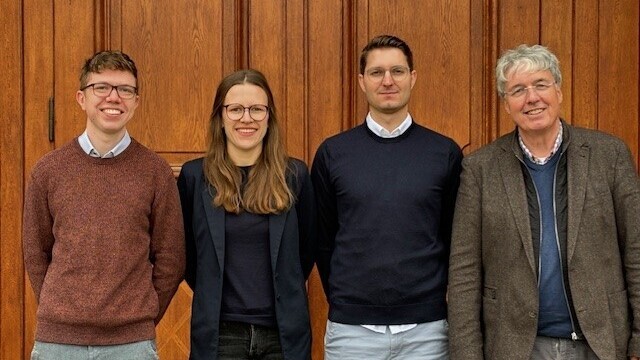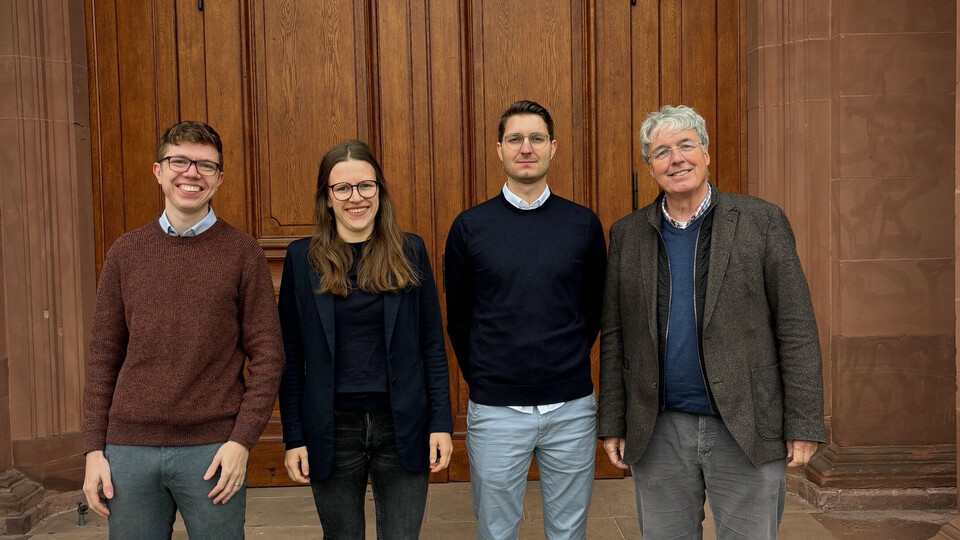M²OLIE Research Campus Successfully Enters Final Funding Phase
The aim of the six academic and 19 industrial partners in the third funding phase of M²OLIE is to complete the M²OLIE basic process that has been developed over the last ten years and is currently being evaluated in a clinical study. This is to be further developed into the M²OLIE closed-loop process for the diagnosis and therapy of patients with liver oligometastases in just one day. Four project modules will be introduced that can be flexibly combined for different processes and applications in the future, including for other indications (tumours in the lungs, pancreas and intestines).
The process starts with patient admission and electronic patient education. The fully digital and comprehensive process management system, the M²OLIE cockpit, guides the treating physicians through the various process steps. The ‘Operational Platform’ module ensures that all subcomponents of the process are integrated into the cockpit and into the clinic's daily routine. The ‘Interventional Suite’ module creates an MRI-based interventional environment that guarantees efficiency and precision at the diagnostic, therapeutic and organisational level through a high degree of digitalisation and automation. When analysing the biopsy, the diagnostic and therapeutic analysis of tumour heterogeneity will be the focus of the ‘Laboratory’ module in order to achieve a complete, highly efficient and partially automated characterisation of tumour foci. The ‘Tumour Board’ module aims to introduce an ad hoc or asynchronous tumour board that is convened via a mobile app and uses integrated guidelines to determine the necessary therapy option.
In the ‘Operational Platform’ module, Prof. Dr. Armin Heinzl, Chair of Business Administration and Information Systems, is focusing on the patient perspective in the closed-loop process with his project group at the Institute for Enterprise Systems (InES) at the University of Mannheim. This is being done in close cooperation with the University Medical Centre Mannheim, the Fraunhofer IPA, the company Medicalvalues GmbH and Varian Medical Systems, a subsidiary of Siemens Healthineers. Four goals are being pursued: (1.) Electronic patient education and admission should be further improved to accelerate the M²OLIE process. (2.) In cooperation with Varian Medical Systems, an app-based patient monitoring system is being implemented and integrated to take into account the specific needs of M²OLIE patients. (3.) The team from the University of Mannheim also aims to improve the patient experience and treatment quality of M²OLIE. (4.) At the same time, the research group from InES is working on patient support using machine learning for psychosocial support of tumour patients in the context of digitalised treatment processes. In doing so, advanced psycho-oncological support options are being developed that use artificial intelligence-based risk detection methods and language models to improve the patient experience. Under the direction of Florian Rüffer, this project builds on an M²OLIE-specific IT infrastructure and prototypes developed in the previous funding phase, which was led by Luis Oberste. The psychosocial support of tumour patients is coordinated by Mechthild Pieper, who will incorporate key results of the DFG project ‘Behavioural Changes through Mobile Health Applications (mHealth)’. The University of Mannheim is receiving almost 700,000 euros in third-party funding for the project. The results will be incorporated into the planned M²OLIE clinic to consolidate the research campus's findings.

